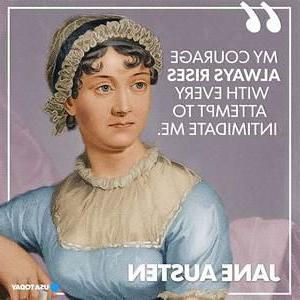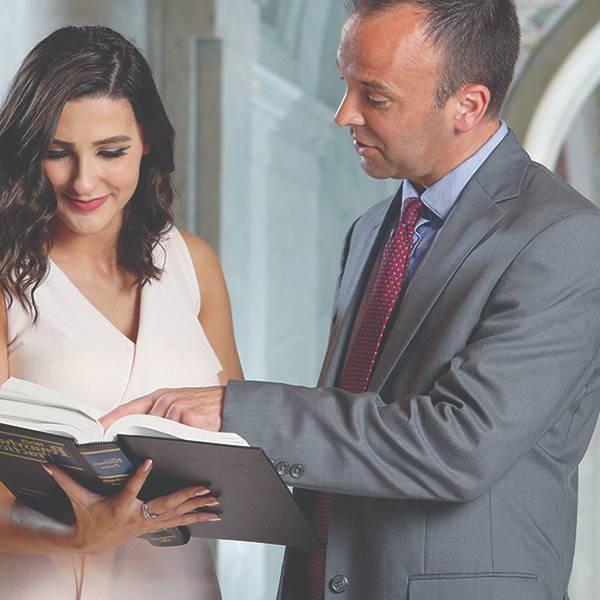Taught By: Dr. Lawrence Kuhar
T, R | 1 - 2:15 P.M.
English 303: Advanced Workshop in Poetry is designed for students who want to work on studying and writing poetry. In addition
to discussions and workshops, our course will consist of analyzing and modeling various
poetic forms and working with varied prompts – both individually and as a class –
as students work to generate a collection of new poems.
As part of the course, students may also have the opportunity to revise already-written
poems. Students will study contemporary poetic techniques. Students will focus on
shaping their voice, experimenting with different forms, and engaging in close readings
of poems. Students will produce a portfolio of their work modeled for publication
or reading.
Taught By: Dr. Thomas A. Hamill
M, W, F | 12 - 12:50 P.M.
In this course we will examine the history of English, beginning with a comparative
study of the language from its origins in Proto-Germanic (and Proto-Indo-European)
and working our way chronologically up through the sounds and symbols we use (and
continually adapt) today. Our aim will be to acquire a working vocabulary for language
study and grammatical and linguistic analysis, as well as a critical understanding
of the historical, social, political, cultural, and material forces that have affected
(and still shape) the ways we communicate and comprehend—and the ways in which we
identify ourselves and others—in and through English.
We will study in detail the internal lexical and grammatical features of the major
versions of the English language that have evolved over the last 1500 years—Old, Middle,
and (Early) Modern English—as we consider thoroughly the broader, external factors
involved in language change. In conjunction with our chronological mapping of developments
across the history of English, we will regularly examine and engage contemporary instances
of language change that unfold around us (and that we participate in and perpetuate)
every day; we will also consider and project, from an historical linguistic perspective,
the changes English will likely continue to undergo due to variables as language-specific
as usage patterns and as general as socio-cultural change and technological innovation.
While our course focus and readings will primarily be linguistic, we will also read
and literary texts that provide important historical examples of English and that
align with Wilkes University Spring Theatre Production and the Department of English’s
Allan Hamilton Dickson Spring Writers Series.
Tentative course assignments include two unit exams, a final exam, one short response
paper (5-7 pages); a word history paper (5-7 pages), a research essay (10-12 pages),
and a digital lexicology/lexicography project.
Taught By: Dr. Helen H. Davis
M, W, F | 2:30 - 3:45 P.M.
"If the doors of perception were cleansed, every thing would appear to man as it is,
infinite. For man has closed himself up, till he sees all things thro' narrow chinks
of his cavern." - William Blake, The Marriage of Heaven and Hell
English 335 will provide an overview of the British Romantic period and will allow
us to closely analyze key Romantic texts. Romantic writers challenged the accepted
social norms of the period, pushed for the rights of enslaved people, women, and the
poor, and created amazing literature that confronts these issues. In this class, we
will:
- Read about the aesthetics of the gothic and picturesque and explore the illuminated
poetic works of Blake from the Blake archive.
- Explore the emergence of new philosophical ideas of the self and the role of the poet
as German Romantic philosophies reached Great Britain and see the influence of those
ideas in Romantic poets like Wordsworth, Coleridge, Blake, Keats, and Shelley.
- Learn about the prominent social issues of the time, focusing especially on socioeconomic
shifts, women’s rights, slavery, and colonization, and then use that knowledge to
come to a greater understanding of the literature of the period.
- Read The History of Mary Prince a West Indian Slave and The Interesting Narrative of the Life of Olaudah Equiano, or Gustavus Vassa, the African and learn about slavery, British Colonialism the push for the abolition of slavery.
- Explore the beginning of science fiction novels with Mary Shelley’s Frankenstein and learn more about the scientific ideas of the time that inspired her work.
- Explore how Austen’s use of irony and innovations of form altered the novel genre,
and bring together our discussions of class, gender, and social issues in our analysis
of one of her novels, then discuss how Austen does and does not fit into “Romantic”
literature.
Requirements: Students in this course can expect to write weekly responses, make one
class presentation, write a paper that critiques a scholarly source, write a 12-15
page research paper with an annotated bibliography, and take a mid-term and final
exam.
Students in the Honors program can take the course for Honors Credit.
Taught By: Dr. Sean J. Kelly
T, R | 9:30 - 10:45 A.M.
In his classic essay “The Uncanny” (1919), Sigmund Freud theorized the psychological
implications of those aesthetic effects which disturb us, unsettle us, and creep us
out without us quite knowing why. While the uncanny or das unheimliche evokes a peculiar
form of affect within “the field of the frightening” (123), it is a type of fear quite
distinct from (though not entirely unrelated to) that produced by horror and terror.
The uncanny, Freud observes, “goes back to what was once known and had long been familiar”
(124). In this sense, the uncanny marks a traumatic return of the repressed. While
the fear caused by an external threat corresponds specifically to the biological organism,
the uncanny relates, more particularly, to what the psychoanalyst Jacques Lacan refers
to as the “divided” subject, namely the subject of language and of the unconscious.
The uncanny generates anxiety in the subject not because it threatens its biological
existence, but rather, because it stages a “missed” encounter with what Lacan calls
the ex-timate, “something strange to me, although it is at the heart of me” (VII 71).
In this class, our aim will be to:
- Familiarize ourselves with the aesthetics of the uncanny by examining theoretical
accounts not only from Freud and Lacan but also from leading contemporary theorists.
Along the way, we will consider the ways in which the uncanny may be viewed as a manifestation
of drive structures involving the gaze and the voice as partial objects;
- Consider not only when but also how the uncanny is constructed in literary, visual,
and filmic representations;
- Consider the implications of the uncanny for a theory of the subject as it pertains
to broader social issues, such as: freedom, morality, the law, sexuality, and death.
Accordingly, we will read passages and excerpts from psychoanalytic theorists, including:
Sigmund Freud, Jacques Lacan, Elizabeth Bronfen, Julia Kristeva, Joan Copjec, Mladen
Dolar, and others.
Primary texts:
- Charles Brockden Brown, Wieland (1798)
- Edgar Allan Poe: “The Raven” (1845), “The Fall of the House of Usher” (1839), “Ligeia”
(1838), and “The Black Cat” (1843)
- Nathaniel Hawthorne, The Scarlet Letter (1850)
- Toni Morrison, Beloved (1987)
- Doris Lessing, The Fifth Child (1988)
- Sam Shepard, Buried Child (1978)
- Yukiko Motoya, “An Exotic Marriage” (2015)
- Andres Barba, Such Small Hands (2017)
- Alejandro Amenábar (director), The Others (2001)
- Ben O’Brien and Alan Resnick (directors), Unedited Footage of a Bear (film short) (2014)







